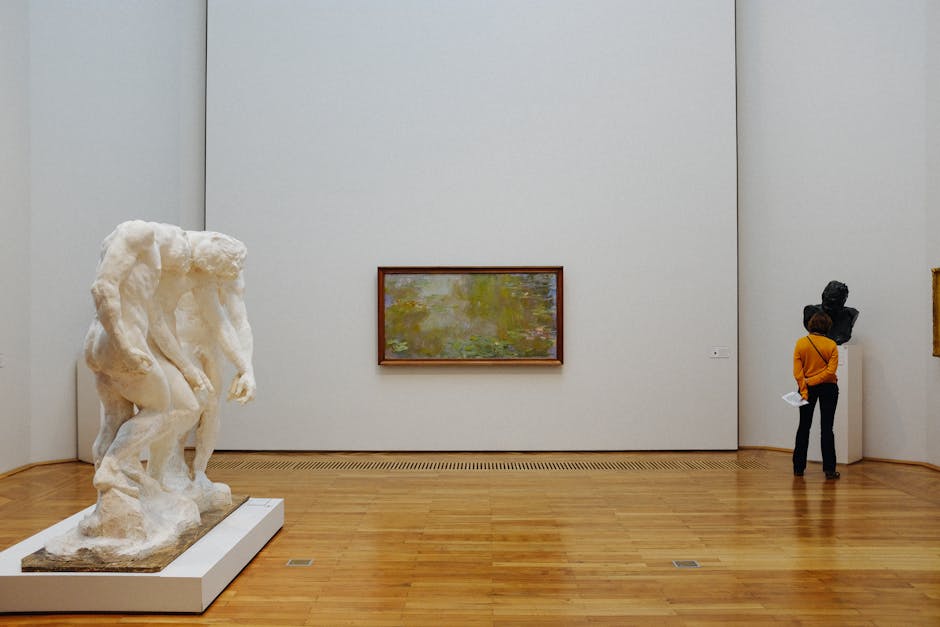Museums, institutions often perceived as repositories of the past, face a constant reevaluation of their role in the present and future. Are these hallowed halls of art and artifacts still relevant in a world saturated with instant access to information and entertainment? This essay argues that museums remain indispensable contributors to societal well-being, offering unique experiences and fostering vital connections across generations and cultures.
A significant aspect of museums’ enduring relevance lies in their capacity to curate and preserve cultural heritage. This is not simply a matter of storing artifacts; it is about interpreting them within their historical context. Expert curators meticulously select, contextualize, and display objects, allowing visitors to understand not only the artistry or craftsmanship but also the socio-political forces that shaped the past. This process of contextualization provides invaluable insight into human behaviour, beliefs, and societal evolution. Consider the impact of a well-curated exhibition on the ancient civilizations or the historical impact of specific artistic movements. Such exhibitions, carefully crafted, can transform passive observation into active learning, challenging preconceived notions and enriching understanding.
Beyond preserving history, modern museums are actively engaging with contemporary issues. This shift isn’t simply about adding contemporary art exhibitions; it’s about integrating these pieces into a larger conversation. Many museums now host workshops, lectures, and interactive displays that directly address current social, political, or environmental concerns. By framing contemporary issues through the lens of history and culture, they foster critical thinking and encourage dialogue amongst diverse audiences. These dynamic spaces become platforms for dialogue, inviting discussions surrounding everything from environmental sustainability to social justice movements.
A further dimension of museum relevance is their role as catalysts for personal and intellectual growth. The experience of interacting with art, history, and culture in a museum setting can have a transformative impact on individuals. Immersion in diverse cultures, through exhibitions focused on specific cultures, or interactive displays on global issues, allows for understanding and empathy. The quiet contemplation of a masterpiece or the discovery of a hidden artifact can spark curiosity, inspire creativity, and promote a sense of wonder. This intellectual and emotional journey is often unique to the museum setting, offering a space for focused reflection free from the distractions of everyday life. Consider the impact a museum visit can have on a child’s developing sense of wonder and imagination.
Museums also play a crucial part in fostering social cohesion. They function as public spaces where people from diverse backgrounds converge, learning and interacting. The shared experience of understanding the past and engaging with the present through a museum’s exhibitions cultivates a sense of shared heritage and mutual understanding. This shared experience strengthens bonds across communities and fosters a sense of belonging for all who enter. Museums act as vital spaces for communities to come together and learn from each other.
Despite the accessibility of online resources, the physical experience of a museum remains invaluable. The tactile interaction with objects, the immersion in sensory environments, and the collective experience of sharing the space with others is simply impossible to replicate digitally. The unique atmosphere created by the lighting, architecture, and the careful display of exhibits can elevate the learning experience. The atmosphere and ambiance of a well-designed museum can foster deep connections with the subject matter.
However, museums face challenges in maintaining relevance. Budget constraints, audience engagement strategies, and the constantly evolving nature of culture all play a role. Museums need to constantly adapt to remain relevant and engaging. One key element is embracing innovation. Interactive exhibits, digital storytelling, and the incorporation of new technologies can re-energize the museum experience. By integrating these innovative tools, museums can offer contemporary audiences engaging narratives and insightful perspectives that resonate with their contemporary interests.
In conclusion, despite a world abuzz with digital media and entertainment options, museums remain profoundly relevant. Their commitment to preserving cultural heritage, exploring contemporary issues, fostering personal growth, and building social cohesion all contribute to a vibrant and informed society. By adapting to modern audiences, embracing innovation, and fostering a shared understanding, museums can continue to be crucial cultural hubs for years to come, shaping our understanding of the past, engaging with the present, and inspiring our future. They are not simply repositories of the past; they are vital spaces for the future.












